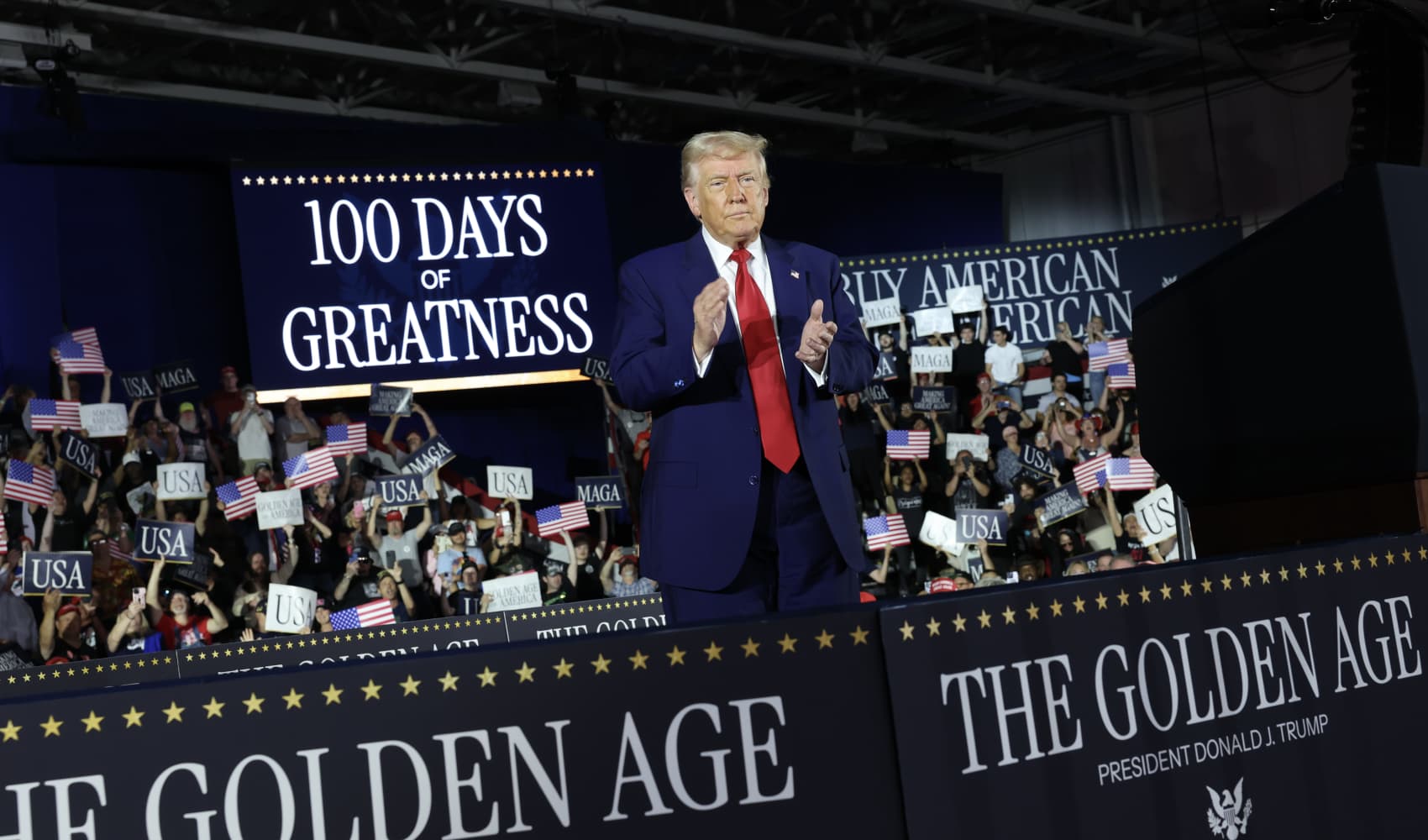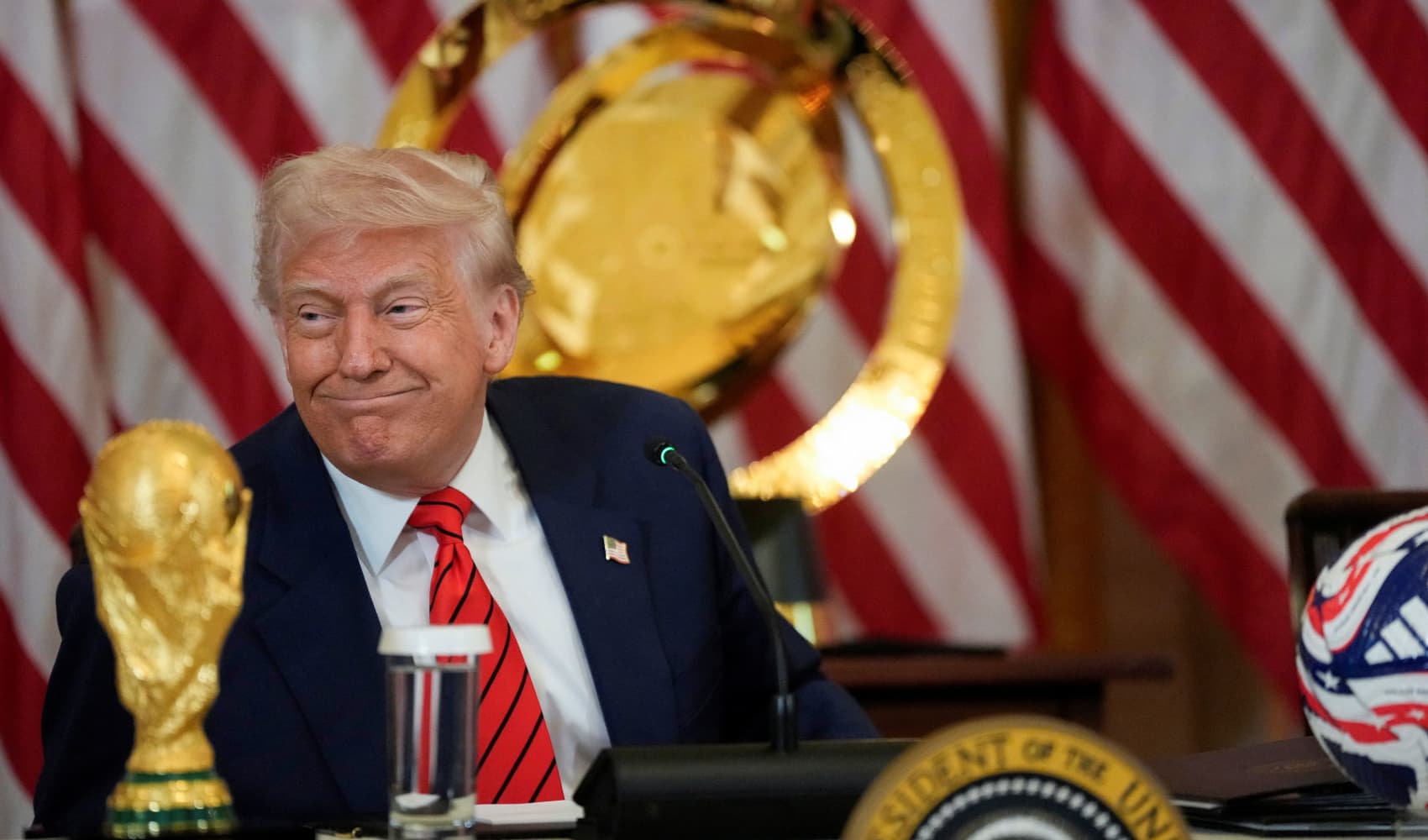Trump Dumps Trade Deals: UK & India Pounce? CNBC Daily Open
CNBC Daily Open: Trump's Trade Deal Dismissal – Opportunity or Obstacle?
Introduction: A World in Flux
Good morning, finance enthusiasts! Get ready for another whirlwind day in the global markets. Today, we're diving deep into the implications of Donald Trump's recent statement dismissing the need for U.S. trade deals. Is this a bold strategy, or a missed opportunity? Meanwhile, the UK and India are forging ahead, showing that trade can happen without U.S. involvement. Let's unpack this, along with the other key events shaping today’s financial landscape. Buckle up; it's going to be a bumpy but informative ride!
Trump's Trade Stance: America First, No Deals Needed?
So, Trump says the U.S. doesn't need trade deals. Really? Is this a calculated negotiating tactic, or a fundamental shift in American trade policy? It feels like we're back to "America First," but with a twist. Perhaps he believes the U.S. holds enough economic leverage to dictate terms without formal agreements. Either way, it's a significant departure from traditional trade diplomacy. This statement could have serious repercussions for international trade relations.
Implications for Global Trade
What happens if the world's largest economy decides to go it alone? Think of it like a star quarterback deciding he doesn't need his team. It might work for a while, but eventually, isolation takes its toll. Will this spark a wave of protectionism globally? Will other nations seek alternative partnerships, leaving the U.S. on the sidelines?
The UK and India: A Bilateral Success Story
While the U.S. seems hesitant, the UK and India are proving that trade deals are still very much alive and kicking. Their recent agreement to slash tariffs on most goods within a decade is a clear signal that international cooperation is still possible.
What the UK-India Deal Means
This deal isn't just about tariffs; it's about forging stronger economic ties between two significant global players. It's a strategic move, particularly for the UK post-Brexit. India gains access to a major market, and the UK diversifies its trade portfolio. Can we see this deal as a roadmap for others bypassing US involvement?
Market Reaction: Investors Shaken?
No surprises here – markets didn't exactly cheer Trump's comments. When the Commander-in-Chief sends shockwaves through the global trade network, investors respond with nervousness. Were we surprised markets fell? Let’s explore how fear can dictate stock prices and investment decisions.
The Volatility Factor
Uncertainty is the enemy of the market. Trump's statement injects a healthy dose of uncertainty into the equation. Expect increased volatility as investors grapple with the potential consequences. Risk management is key in such an environment. Diversify, hedge, and maybe keep some popcorn handy – you'll need it for the show.
U.S. - China Trade Talks: A Glimmer of Hope?
Despite Trump's stance, U.S. officials are meeting with their Chinese counterparts in Switzerland this week to discuss trade matters. Is this a sign that dialogue is still possible, even if deals are off the table? It’s worth watching.
What to Expect from the Switzerland Meeting
Don't expect any breakthroughs overnight. These talks are likely about damage control and keeping communication lines open. However, even incremental progress can provide a much-needed boost to market sentiment. We’ll be watching what happens at these talks closely.
Advanced Micro Devices (AMD): Shining Bright
In other news, Advanced Micro Devices (AMD) reported better-than-expected earnings for its first fiscal quarter and gave strong guidance for the current quarter. A big win in a market down turn.
Tech Sector Resilience
AMD's success story underscores the resilience of the tech sector, even amidst global economic headwinds. Strong earnings and positive guidance suggest that demand for its products remains robust. It's a testament to innovation and adaptability in a rapidly evolving industry.
India-Pakistan Tensions: Geopolitical Concerns
Adding to the day's complexities, India announced that its armed forces had conducted strikes against Pakistan. This is a classic example of how geopolitical events can impact global markets. It serves as a sharp reminder that financial markets are not insulated from real-world events.
The Impact of Geopolitical Events
Heightened tensions between India and Pakistan create uncertainty and can lead to increased risk aversion. Investors may seek safe-haven assets, such as gold and government bonds. It's a delicate situation that requires careful monitoring. Stay informed and consider its impact on your investment strategy.
JPMorgan's Warning: "Not a Good Place to Hide"
JPMorgan is sounding the alarm, warning that the U.S. "is not a good place to hide" in the event of a global economic slowdown. Ouch. This statement is a stark reminder that even the world's largest economy is vulnerable to global economic trends.
Why JPMorgan's Warning Matters
JPMorgan's assessment carries weight. It suggests that investors should not assume the U.S. will be immune to a potential global recession. Diversification and a global perspective are crucial for navigating such an environment. Perhaps it’s a case of not putting all of your eggs in one basket.
Treasury Secretary Bessent's Comments: A Ray of Optimism?
Treasury Secretary Scott Bessent told CNBC on Monday about promising signs of reconstruction, after Trump's disruptions. Is Bessent downplaying the implications of Trump’s statements or working to mend the broken links?
The Path to Recovery
Secretary Bessent's comments offer a glimmer of hope that efforts are underway to rebuild trust and repair fractured trade relationships. It remains to be seen whether these efforts will be successful, but the acknowledgement of the need for reconstruction is a positive step.
The Art of the Deal (or Not): Trump's Negotiating Style
Let's be honest, Trump's approach to trade is... unconventional. Is it genius or madness? Only time will tell. However, understanding his negotiating style is crucial for interpreting his statements and predicting future policy decisions.
Reading Between the Lines
With Trump, what you see is not always what you get. His statements often serve as negotiating ploys, designed to extract concessions from trading partners. The key is to distinguish between genuine policy shifts and calculated bargaining tactics.
Beyond the Headlines: Long-Term Implications
Zooming out, what are the long-term implications of these events? Are we witnessing a fundamental shift in the global economic order? Are U.S. companies now considering relocating operations? The answer isn't clear yet, but one thing is certain: the world is changing rapidly.
Adapting to a New Reality
Investors and businesses need to be adaptable and prepared for a range of potential outcomes. Diversification, global awareness, and a willingness to embrace change are essential for navigating this new reality. Let’s brace ourselves.
The Future of Global Trade: A Crystal Ball?
Predicting the future is always a risky endeavor, but we can make informed guesses based on current trends. Will the U.S. continue to pursue a go-it-alone strategy? Will other nations forge stronger regional partnerships? Will technology disrupt traditional trade patterns? These are the questions that will shape the future of global trade.
Scenario Planning: Preparing for the Unknown
The best way to prepare for the future is to develop multiple scenarios and consider the potential implications of each. By anticipating different outcomes, you can position yourself to capitalize on opportunities and mitigate risks.
Conclusion: Navigating the Uncertainties
So, what are the key takeaways from today's CNBC Daily Open? Trump's trade stance, the UK-India deal, geopolitical tensions, and JPMorgan's warning are all contributing to a complex and uncertain global landscape. The key is to stay informed, adaptable, and prepared for anything. It's a wild ride, but one we can navigate together. Remember to do your research, seek expert advice, and never stop learning.
Frequently Asked Questions (FAQs)
Question 1: What is the potential impact of Trump's "no trade deals" stance on U.S. businesses?
Answer: It could lead to increased costs for U.S. businesses due to tariffs and reduced access to foreign markets, potentially impacting profitability and competitiveness.
Question 2: How does the UK-India trade deal benefit both countries?
Answer: It provides the UK with access to a large and growing market in India, while India gains preferential access to the UK market, boosting trade and investment opportunities for both.
Question 3: What are the main risks associated with the current geopolitical tensions between India and Pakistan?
Answer: The risks include potential disruptions to trade routes, increased regional instability, and negative impacts on investor sentiment in both countries and the wider region.
Question 4: Why is JPMorgan warning that the U.S. is "not a good place to hide" during a global economic slowdown?
Answer: They likely believe that the U.S. economy is highly interconnected with the global economy and, therefore, vulnerable to external shocks, suggesting investors should diversify globally.
Question 5: What steps can investors take to protect their portfolios in the face of global economic uncertainty?
Answer: Investors can diversify their portfolios across asset classes and geographic regions, consider hedging strategies, and consult with financial advisors to develop a personalized risk management plan.

